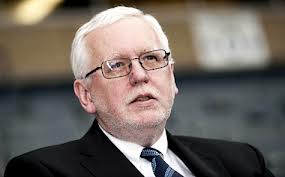By Andrew Warshaw, chief correspondent
April 16 – Scottish football was plunged into total disarray when Premier League clubs failed to reach a consensus on a groundbreaking deal designed to restructure and re-invigorate the game, prompting widespread anger and in-fighting.
Ross County and St Mirren voted against a new model for Scottish football which needed the support of at least 11 of the 12 top-flight clubs.
Under the breakthrough plan, which would have provided a more equitable distribution model, Scotland would have had three divisions of 12, 12 and 18 with the Scottish Premier League, in its current guise, disbanded.
Next season, the 24 clubs in the top two tiers would have been split into three groups of eight after 22 matches of the season – and would then have played a further 14 matches. The top eight teams would have gone on to challenge for the league title and European qualification places; the middle eight contesting promotion and relegation in and out of the top division; and the bottom eight to decide who dropped into a so-called National League. It may sound complicated but it is a system that has been tested in several countries of similar stature to Scottish domestic football, notably Switzerland and Austria. But St. Mirren and Ross County rejected it.
Aberdeen chairman Stewart Milne immediately accused the two dissenting clubs of “ruining Scottish football”. Clubs in favour had been willing to compromise and alter the required majority for changes in structure from 11-1 to 9-3 but even that failed persuade the two deal breakers to support scrapping the current 12-10-10-10 system by the start of next season.
A positive vote from the SPL clubs was required if the proposal was then to progress to a ballot of the 30 Scottish Football League clubs on Friday. They almost certainly would have voted in favour of the deal leading to a total redistribution of wealth to lower-league clubs.
“This is going to have major implications for Scottish football in the short-term … and could potentially damage the game in the long term,” said Milne. “I am very angry. St Mirren Football club have really to go and pose themselves the question: ‘why they are prepared to put the rest of Scottish football in jeopardy’ just because of their own selfish interests?”
What happens now is anyone’s guess though it is assumed the current status quo will be maintained with a 12-team SPL, one team relegated, one team up from the Scottish Football League but with an even tougher economic climate.
St Mirren chief executive Stewart Gilmour recently claimed the restructuring plans were bad for the fans and wouldn’t move the game forward. Supporters, he said, wouldn’t buy season tickets if they were unsure what they were paying to see.
But an SPL statement said after what was described as a tempestuous meeting: “The board would like to place on record its deep disappointment that proposals to benefit the entire game in Scotland have been blocked.”
SPL chairman Ralph Topping added: “An overwhelming majority of SPL clubs voted for these proposals to go through. The proposals foundered on the opposition of two clubs. The package involved concessions from all clubs and was for the betterment of Scottish football as a whole.
“I would like to thank those who have supported these proposals, including those full-time professional clubs outside of the SPL who find themselves let down by today’s vote. Scottish football needs to change. I had previously announced my intention to step down once a successor had been identified. I have today advised the board that I will not be seeking re-election at the SPL’s AGM this July.”
But SPL chief executive Neil Doncaster, who spent several painstaking weeks fine-tuning the blueprint with all the various stakeholders, insisted he would not resign. In the buildup to the ballot Doncaster had urged St. Mirren to put aside its “vested interest” and support the new model after months of twists, turns and tweaks in an effort to bring financial reality back to the Scottish game.
Doncaster said the new pyramid structure was the only realistic way of preventing the Scottish game “falling into the abyss”.
“It’s really important that we don’t decide against all the benefits that can be delivered with a positive vote,” he said.
After the vote, Doncaster couldn’t hide his frustration at the result he feared. “There’s a sense of real disappointment within the SPL board,” he said. “I feel sorry for the professional clubs outside the SPL who will feel the weight of this decision perhaps more keenly than many.
“We have the status quo and there’s been a lot of time and money spent from a huge number of people to try to take the game forward. There’s still a great deal of work to be done and I’ll be carrying out that work on behalf of all 12 clubs over the summer. I believe very much in the SPL going forward… I think there’s a line about not walking away that’s been used in the past.”
Contact the writer of this story at moc.l1744750218labto1744750218ofdlr1744750218owedi1744750218sni@w1744750218ahsra1744750218w.wer1744750218dna1744750218

